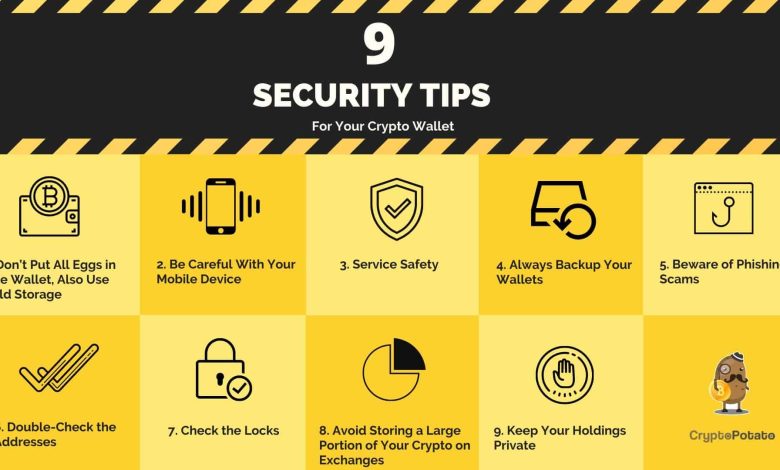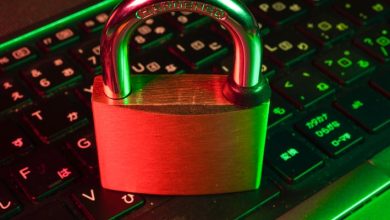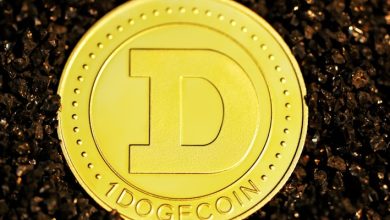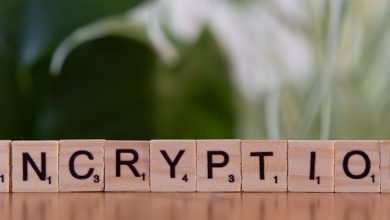Best Practices for Securing Your Crypto Wallet

- Understanding the Importance of Crypto Wallet Security
- Tips for Creating a Strong Password for Your Crypto Wallet
- The Role of Two-Factor Authentication in Protecting Your Crypto Assets
- Best Practices for Backing Up Your Crypto Wallet
- Common Mistakes to Avoid When Securing Your Crypto Wallet
- Choosing the Right Hardware Wallet for Maximum Security
Understanding the Importance of Crypto Wallet Security
Ensuring the security of your crypto wallet is paramount in safeguarding your digital assets. With the rise in popularity of cryptocurrencies, hackers are constantly looking for vulnerabilities to exploit. Therefore, it is crucial to understand the importance of crypto wallet security to protect your investments.
One of the key aspects of crypto wallet security is the use of strong passwords. **Creating** a complex password with a combination of letters, numbers, and special characters can significantly reduce the risk of unauthorized access to your wallet. It is also advisable to avoid using the same password for multiple accounts to prevent potential security breaches.
Another essential security measure is enabling two-factor authentication (2FA) for your crypto wallet. **By** adding an extra layer of protection, 2FA requires users to provide a second form of verification, such as a code sent to their mobile device, before accessing their wallet. This can help prevent unauthorized access even if your password is compromised.
Regularly updating your wallet software is also crucial for maintaining security. Developers often release updates to patch vulnerabilities and improve security features. **By** keeping your wallet software up to date, you can ensure that you have the latest security enhancements to protect your assets from potential threats.
Furthermore, it is important to be cautious of phishing attempts and malware that could compromise the security of your crypto wallet. **Avoid** clicking on suspicious links or downloading attachments from unknown sources, as they may contain malicious software designed to steal your sensitive information. Always verify the authenticity of websites and only download software from trusted sources.
Overall, understanding the importance of crypto wallet security and implementing best practices can help you mitigate the risks associated with storing and managing your digital assets. By taking proactive steps to secure your wallet, you can have peace of mind knowing that your investments are protected from potential threats.
Tips for Creating a Strong Password for Your Crypto Wallet
When it comes to securing your crypto wallet, creating a strong password is crucial to protect your digital assets from unauthorized access. Here are some tips to help you generate a robust password:
- Use a combination of uppercase and lowercase letters: Incorporating both uppercase and lowercase letters in your password can make it more difficult for hackers to crack.
- Include numbers and special characters: Adding numbers and special characters such as !, @, or # can further enhance the complexity of your password.
- Avoid using easily guessable information: Refrain from using personal information like your name, birthdate, or common words that can be easily guessed.
- Make it lengthy: Aim for a password that is at least 12 characters long to increase its strength and resilience against brute force attacks.
- Consider using a passphrase: Instead of a single word, consider using a passphrase that combines multiple words to create a unique and memorable password.
By following these tips and creating a strong password for your crypto wallet, you can significantly reduce the risk of unauthorized access and protect your digital assets from potential threats.
The Role of Two-Factor Authentication in Protecting Your Crypto Assets
Implementing two-factor authentication (2FA) is crucial in safeguarding your crypto assets from unauthorized access. 2FA adds an extra layer of security by requiring not only a password and username but also something that only the user has on them, such as a piece of information only they should know or have immediately to hand – like a physical token. This significantly reduces the risk of cyber attacks and theft of your digital currencies.
Best Practices for Backing Up Your Crypto Wallet
When it comes to securing your crypto wallet, backing up your wallet is crucial to ensure that you don’t lose access to your funds. Here are some best practices to follow:
- Regular Backups: Make sure to regularly back up your wallet to prevent any loss of data. This will ensure that you can always restore your wallet in case of any issues.
- Offline Storage: Consider storing your backup in an offline location, such as a USB drive or external hard drive. This will protect your backup from online threats.
- Multiple Copies: Create multiple copies of your backup and store them in different secure locations. This will provide redundancy in case one backup is lost or damaged.
- Encryption: Encrypt your backup files to add an extra layer of security. This will prevent unauthorized access to your wallet in case your backup falls into the wrong hands.
- Test Restoration: Periodically test the restoration process using your backup to ensure that it works correctly. This will help you verify that you can recover your wallet when needed.
Common Mistakes to Avoid When Securing Your Crypto Wallet
When it comes to securing your crypto wallet, there are several common mistakes that you should avoid to ensure the safety of your digital assets. One of the most frequent errors is neglecting to use two-factor authentication, which adds an extra layer of security to your account. Another mistake to steer clear of is sharing your private keys or recovery phrases with anyone, as this could lead to unauthorized access to your funds.
Additionally, it is crucial to be cautious when downloading wallet software or apps, as some may contain malware or be fraudulent. Always verify the legitimacy of the source before installing anything on your device. Furthermore, avoid using public Wi-Fi networks when accessing your wallet, as these connections are more vulnerable to hacking attempts.
Another common mistake is neglecting to regularly update your wallet software. Developers often release updates to patch security vulnerabilities, so it is essential to stay current with the latest version. Lastly, failure to back up your wallet regularly can result in permanent loss of your funds in case of device failure or loss.
Choosing the Right Hardware Wallet for Maximum Security
When it comes to securing your cryptocurrency assets, choosing the right hardware wallet is crucial for maximum security. Hardware wallets are physical devices that store your private keys offline, making them less vulnerable to hacking and cyber attacks. Here are some key factors to consider when selecting a hardware wallet:
- Security Features: Look for hardware wallets that offer advanced security features such as PIN protection, passphrase support, and multi-signature capabilities. These features add an extra layer of protection to your wallet and help safeguard your funds.
- Compatibility: Make sure the hardware wallet you choose is compatible with the cryptocurrencies you plan to store. Some wallets support a wide range of coins, while others are more limited in their offerings.
- Reputation: Research the reputation of the hardware wallet manufacturer before making a purchase. Look for reviews from other users, as well as any security audits or certifications the company may have received.
- User-Friendly Interface: Opt for a hardware wallet with a user-friendly interface that makes it easy to send and receive funds. A complicated or confusing interface can lead to mistakes that could compromise the security of your wallet.
- Backup Options: Choose a hardware wallet that offers multiple backup options, such as seed phrases or recovery sheets. This will allow you to restore your wallet in case it is lost, stolen, or damaged.
By taking these factors into consideration, you can select a hardware wallet that provides the highest level of security for your cryptocurrency holdings. Remember, investing in a quality hardware wallet is an investment in the safety and security of your digital assets.



